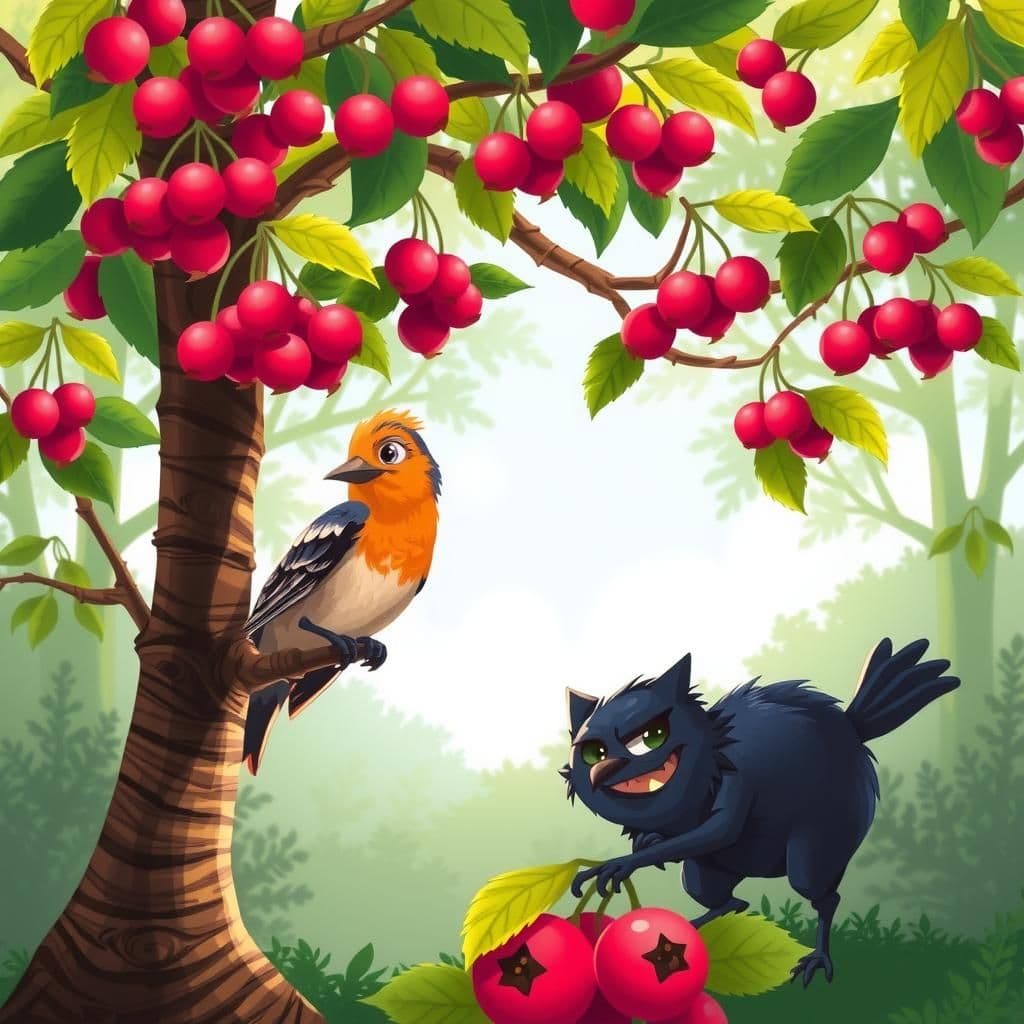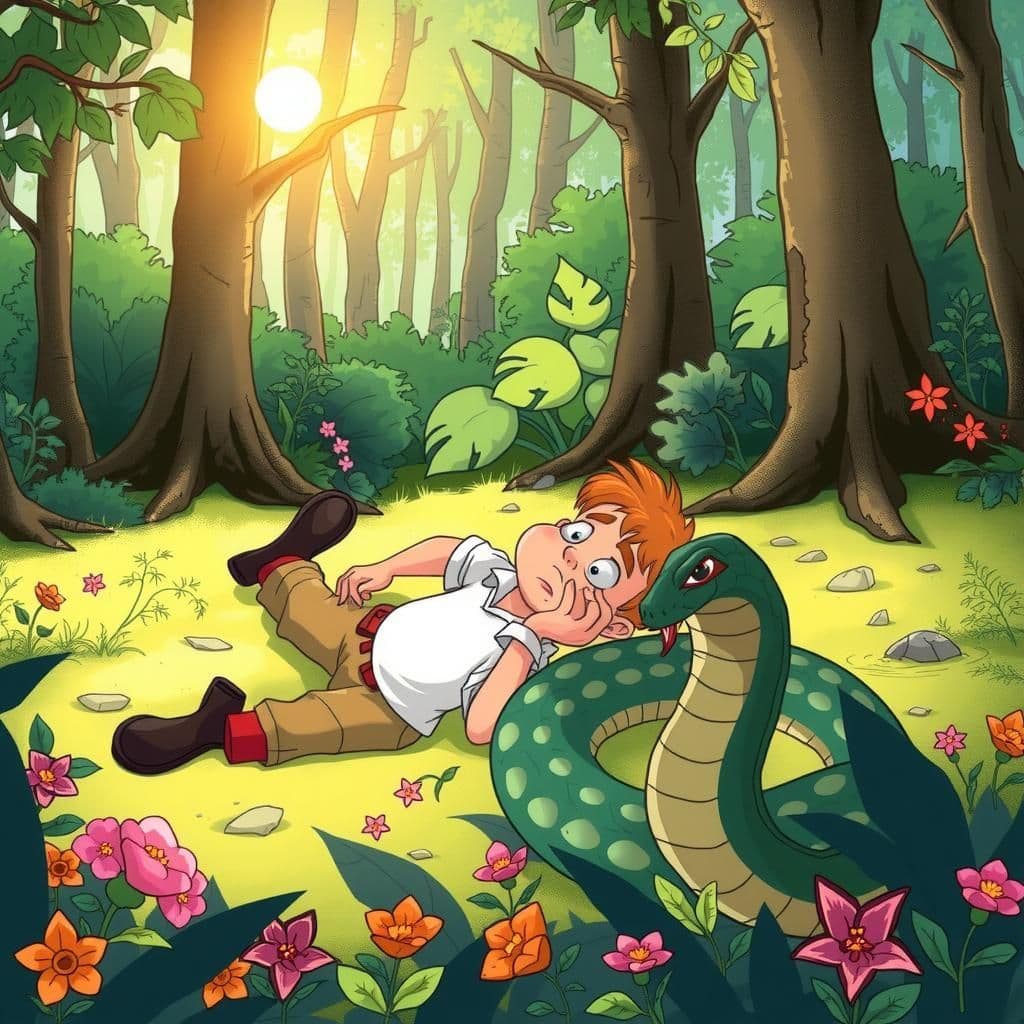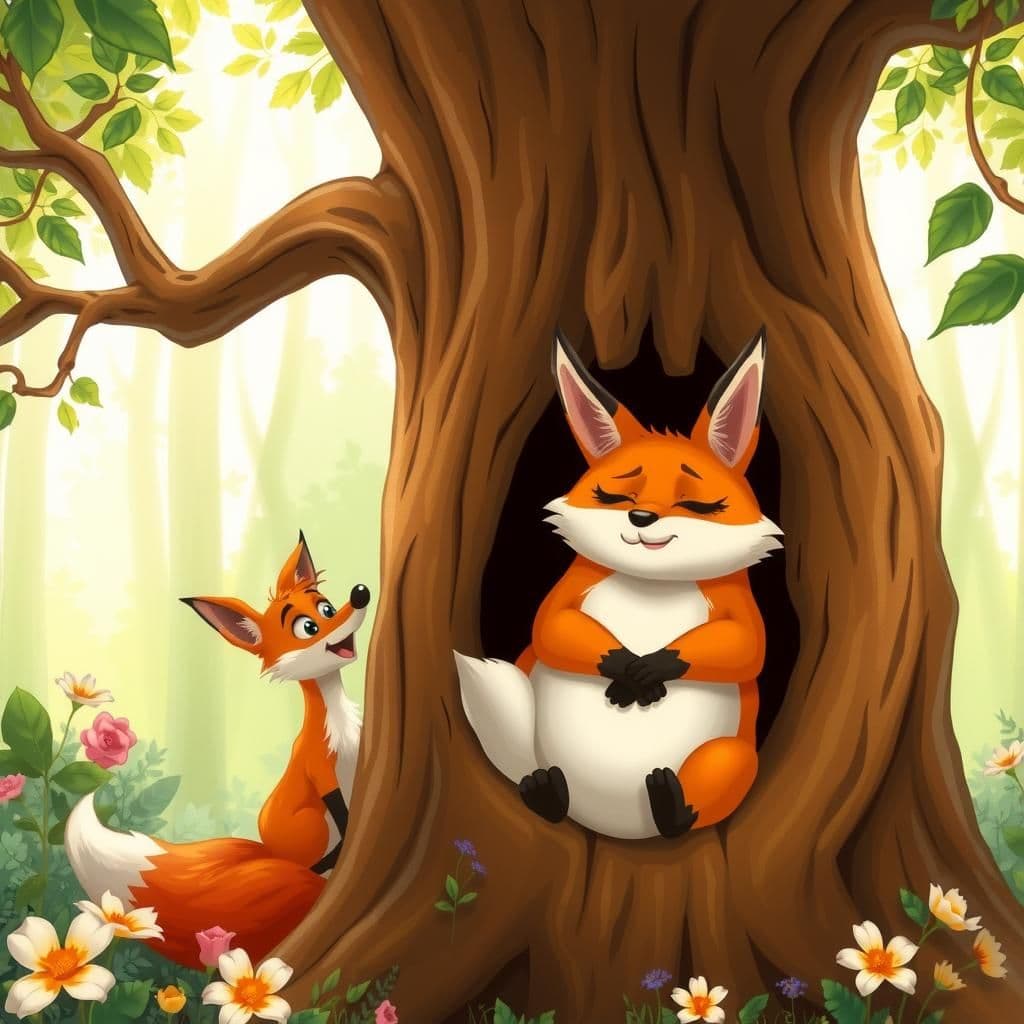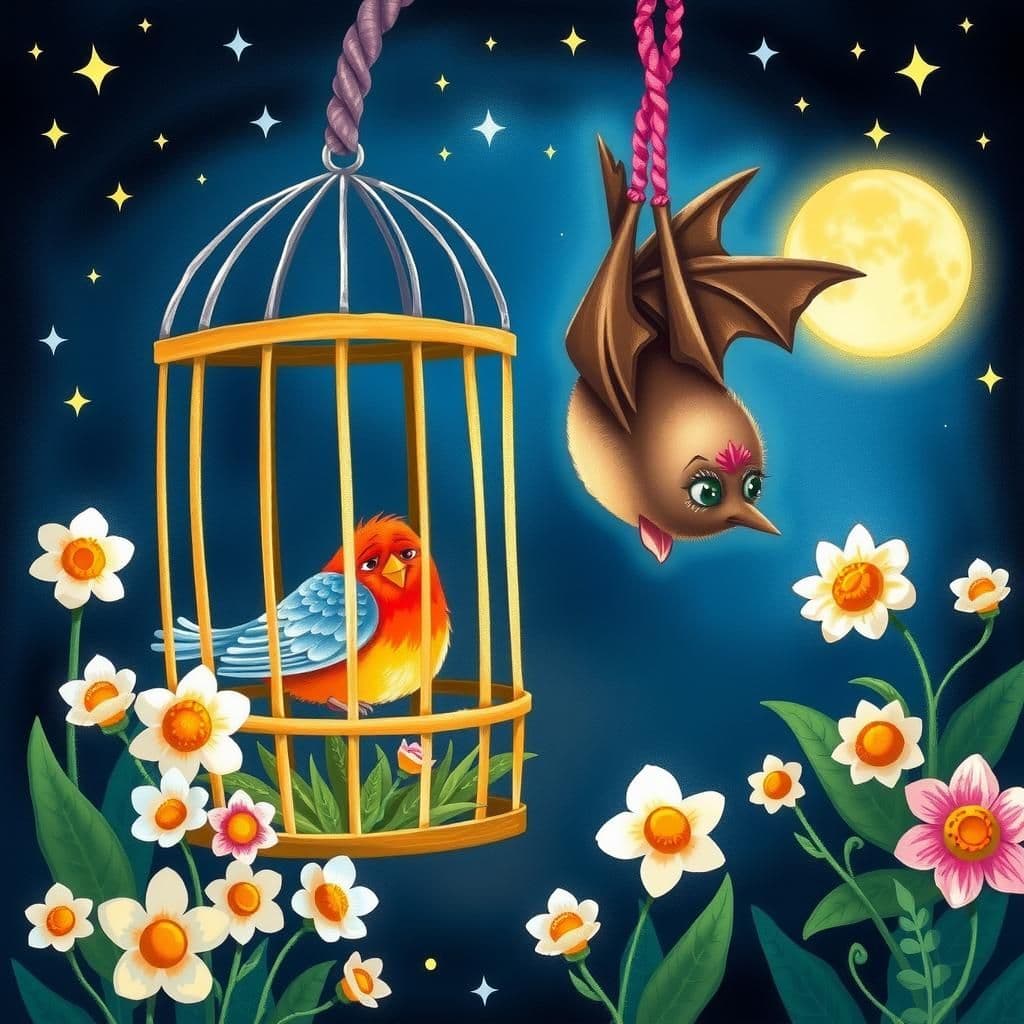The Thrush and the Fowler
In this short moral tale, a Thrush becomes so captivated by the delicious berries of a myrtle-tree that she fails to notice a Fowler setting a trap. Ultimately caught, she reflects on her foolishness, realizing that her pursuit of temporary pleasure has cost her life. This poignant story serves as a reminder of the dangers of indulgence, making it one of the best moral stories for children.

Reveal Moral
"The moral of the story is that indulging in temporary pleasures without caution can lead to dire consequences."
You May Also Like

The Fowler and the Viper
In this engaging moral tale, a fowler intent on catching a thrush inadvertently steps on a sleeping viper, which stings him, leading to his downfall. As he falls into a swoon, he reflects on the irony of becoming ensnared in danger while trying to ensnare another. This short story serves as a poignant reminder that in our pursuit of unique moral stories, we must be wary of the dangers that may lurk beneath our focus.

The Swollen Fox
In this famous moral story, a hungry fox indulges in bread and meat found in a hollow oak, only to become trapped due to his gluttony. Another fox advises him that he must wait until he loses weight to escape, illustrating the life-changing moral that moderation is key. This concise moral story serves as a reminder of the consequences of overindulgence.

The Cage Bird and the Bat
In this timeless moral story, a caged bird sings only at night, having learned the hard way that singing during the day led to her capture by a fowler. When a bat questions her precautions, it highlights the futility of taking such measures after already being imprisoned. This short story serves as a powerful reminder that precautions are meaningless once one is already in danger, making it a valuable addition to any collection of famous moral stories for kids.